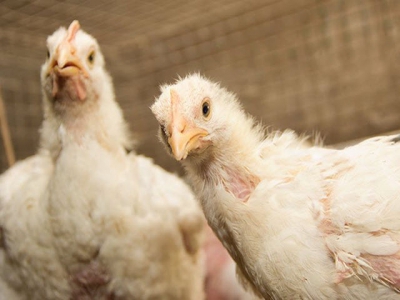The upside to vegetarian-fed broilers

An opportunity exists in using high-quality rendered products when political restraints do not apply
With an increasing number of broiler producers committing to an all-vegetable dietary regimen for their birds, one has to consider, what are we going to do with all the non-vegetable ingredients? It is correct to assume that the pet food industry will absorb a good part of the animal byproducts, but they too are becoming rather sensitive in their selection of ingredients.
A question I received recently from someone well-versed in the U.S. poultry industry has to do with grasping the opportunity to use low-cost, high-volume animal byproducts. Assuming vegetarian-fed broiler rearing leaves behind a significant amount of rendered products for their prices to become even more attractive, what is stopping the rest of the producers from using even more of such products?
Quality. This is the No. 1 enemy of every ingredient, and more so for animal-rendered products. High quality products require refined processing, which in turn increases their price — hence they are no longer as attractive as alternative sources of protein (and lipids). But, let us assume quality is good enough and prices drop. In this scenario, nutritionists can expand the limits on using such ingredients almost with impunity — assuming all checks and balances in the designed diets remain in place. Yes, there are a couple ingredients that have a palatability issue that cannot be controlled through nutrient specifications, but qualified nutritionists know about such ingredients.
There is a significant move against animal-rendered products used in animal feeds. Some of this skepticism is justified by the isolated incidences of abuse, but in my opinion, the problem is not so much scientific or technical but rather one that can attributed to political and marketing creativity. Whether or not this will continue is unknown, but if you happen to come across a good volume of high-quality rendered products, talk to your nutritionist!
Related news
 How to tell if chicks are getting what they need
How to tell if chicks are getting what they need Without proper brooding, chicks can’t reach their genetic potential, resulting in reduced yield, poor flock uniformity, and higher mortality rates.
 Reasons for buying animal welfare friendly eggs researched
Reasons for buying animal welfare friendly eggs researched Age, income, education, occupation and religion all have an impact on willingness to pay for animal welfare friendly eggs
 Developing nations need robust support to reduce medicine use
Developing nations need robust support to reduce medicine use It can seem distinctly unfair to judge developing countries’ practices when it comes to the environment or use of fossil fuels